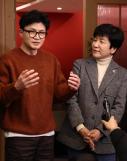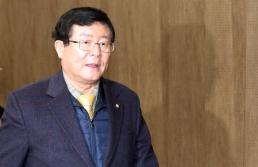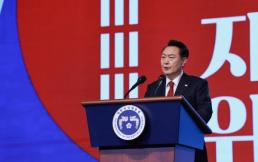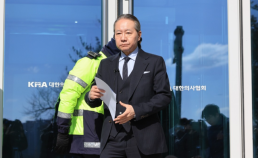The international community is likely to try to catch every word and action during the trilateral summit meeting between South Korea, China, and Japan in Beijing on Saturday since the meeting will largely address the North Korea’s nuclear issue.
The summit is drawing more attention especially because North Korea expressed its willingness to return to six-party talks after Chinese Prime Minister Wen Jiabao made a visit to meet with North Korea’s Kim Jong-il for addressing nuclear issues and talking about the closer ties between China and North Korea.
For the nuke issue, South Korea President Lee Myung-bak is reportedly going to emphasize the importance of ‘Grand Bargain’, which was proposed during his speech at the Council on Foreign Relations office in New York on September 21. The grand bargain is a one-shot approach which involves the exchange of compensation corresponding to North Korea’s abandonment of core areas in its nuclear program.
President Lee will act boldly and swiftly in addressing the nuke issues with his counterparts during the summit since he has already announced that South Korea is going to take a leading role in this matter.
Experts, however, say that his proposal might not go the way that Lee hoped largely because of external influence of America and China. The Chinese government scored much-needed points bilaterally, and would not be too disappointed that it failed to pull off the diplomatic coup of conclusively dragging Pyongyang back to the six-nation nuclear disarmament talks.
North Korean leader Kim also told Mr Wen on Oct 5 that returning to negotiations depends on Pyongyang first having a dialogue with Washington.
Lee Jung-cheol, professor in political science and diplomacy of Soongsil University in Seoul, said that nuclear problem in Korean peninsula is not something that can be easily addressed in the tripartite summit.
“I don’t think it would mean anything to North Korea for the South to announce its stance on the nuclear issue since Lee administration has the least control over the matter…The solution to nuke in the peninsula will be introduced as the bilateral talks between the U.S. and North address the delicate part with China acting as a peacemaker between,” he claimed.
In other words, the South Korean government should change the perspective on its role in dealing with nuclear program and attitude towards the regime in the North. South Korea might lose its place in the six-party talks if the Lee administration only sticks to the diplomatic policy which lacks of reaching international consensus on the role of South Korea.
“China maintains a stance that diplomatic efforts and conversation are hopes for peace in Korean peninsula. But, frankly speaking I don’t think that even China is so optimistic about North Korea’s coming back to the six-party talks,” said an official of the ministry of foreign affairs and trade.
아주경제= 신기림 기자 kirimi99@ajnews.co.kr
(아주경제=ajnews.co.kr) 무단전재 배포금지
©'5개국어 글로벌 경제신문' 아주경제. 무단전재·재배포 금지

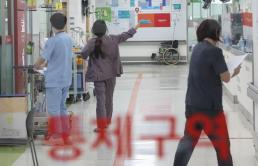
![[르포] 중력 6배에 짓눌려 기절 직전…전투기 조종사 비행환경 적응훈련(영상)](https://image.ajunews.com/content/image/2024/02/29/20240229181518601151_258_161.jpg)
